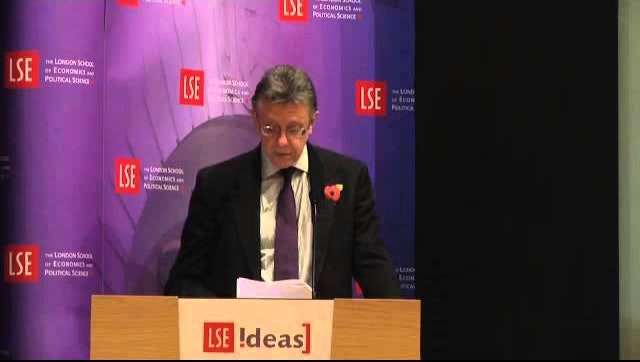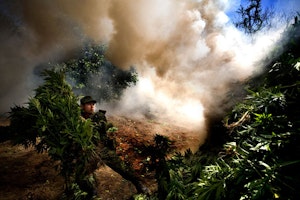Governing the Global Drug Wars
By John Collins

Since 1909 the international community has worked to eliminate the use of illegal narcotics. A century on, these efforts are widely acknowledged to have failed, and worse, have spurred black market violence and human rights abuses.
How did this drug control system arise, why has it proven so durable in the face of failure, and is there hope for reform? On October 23, 2012, LSE IDEAS, an international affairs think tank at the London School of Economics, held a day-long event and released a Special Report titled, Governing the Global Drug Wars, that addressed these questions.
The report was compiled from expert academic submissions and included contributions by former Swiss President Ruth Dreifuss and her colleague Diane Steber Buechli, as well as leading scholars on international drug control.
In his foreword to the report, Colombian President Juan Manuel Santos described it as “a valuable contribution to this healthy and necessary debate.” He went on to say that “by re-examining the international approach to the drug problem from an academic perspective, we are nourishing the discussion and setting the conditions to find a new and more efficient strategy.”
The various submissions formed the basis for an academic conference held during the day which consisted of presentations and intensive round-table discussions. This dialogue was held under Chatham House rules to ensure a free exchange of views.
After the academic conference participants were invited to a public round-table discussion at the LSE’s oldest lecture hall, the Old Theatre. The event attracted 340 audience members from the LSE, other London universities, and the general public.
IDEAS Founding Director Professor Michael Cox opened the round table and welcomed each of the four speakers. Dr. William McAllister, the preeminent diplomatic historian of international drug control, opened with an overview of the structure of the UN administered drug control system. He was followed by Professor David Courtwright who sought to explain why certain drugs have traditionally been the subject of war, while others have become embedded in the mainstream economy. Dr. Ethan Nadelmann, executive director of the Drug Policy Alliance and an LSE Alumnus, offered a damning indictment of the US war on drugs and called on students to become active in pushing for reform of international drug policies. Nigel Inkster, from the International Institute for Strategic Studies, closed with an analysis of how drugs issues can be better managed by policy makers.
We invite you to watch all of these presentations here.
John Collins is a coordinator at the London School of Economics IDEAS International Drug Policy Project.

